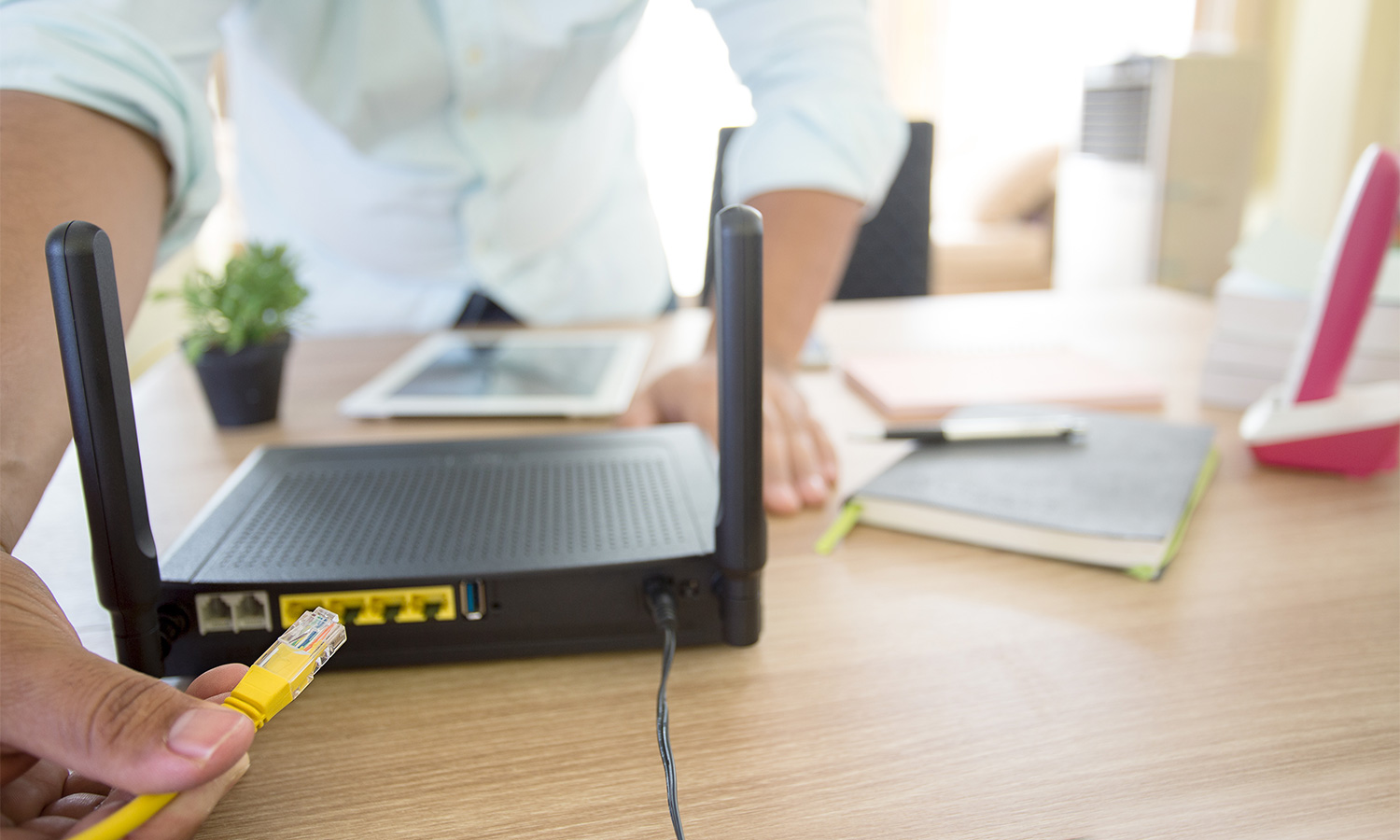How to install a VPN on a router
Everything you need to know about installing a VPN on a router

A router VPN is one of the most comprehensive ways to secure your household’s internet connection. By securing your connection at the source, you can eliminate any human error – seeing as it’ll always be on, you don’t have to remember to activate it. Plus, you’ll be able to use the best VPN to protect devices that don’t natively support VPN apps, including games consoles and smart TVs.
However, the installation process can be much more complicated than typical VPN clients on PC or mobile, and while some providers do have dedicated apps for routers, most require manual installation which can be quite a tricky process.
It's also worth noting that if you don't have a router that's compatible, you can get away with setting up a virtual router in a pinch.
What’s the easiest way of installing a VPN on a router?
The easiest way to install a VPN on your router is to use ExpressVPN. Our #1 pick for best provider overall, your subscription will grant you access to a dedicated router app that’s unparalleled in the VPN world.
Once you’ve signed up to ExpressVPN, you’ll be able to search for instructions for all the routers that are compatible with the app. If you have one – or if you buy one especially – setup is super simple:
While there are minor changes for each router, the steps are much the same. Firstly, you’ll download ExpressVPN’s firmware for your specific router. Make sure to keep hold of your activation code.
Then turn on your router – don’t connect to the internet yet – and install the firmware. ExpressVPN provides instructions for all specific routers. Then reboot the router.
It's worth mentioning here that if you're setting up a secondary router for VPN connections, you'll need to connect your new router to your current one with an Ethernet cable. You can ignore this step if you're using a one-router setup.
After that, you need to connect your device to the VPN router via cable or Wi-Fi. You'll be directed to Express’s router dashboard, where all you need to do is enter your login information to complete the process, and you’re done.
- Visiting Japan? You need a Japan VPN

How to install a VPN without an app
If you don’t have an ExpressVPN plan and are using a different provider, things can be a little trickier. However, to avoid hassle, it could be good idea to purchase a pre-flashed router from a provider like FlashRouters. This sets up your new router with suitable firmware for your chosen VPN – and most VPNs have relationships with these companies to provide discounts and deals.
This is even easier than installing ExpressVPN’s app, but it does cost a fair bit – especially if you want one of the better routers on offer.
Otherwise, it’s a fairly lengthy process of installing firmware yourself, which is different for almost every router. If you want to go down this route, we recommend following your VPN's given instructions to the letter.
Why should I install a VPN on my router?
That’s a good question – with all this extra effort, is it even worth doing it in the first place? Well, in some circumstances it’s your only option.
For example, if you use a games console or smart TV to watch most of your content without a device like a Fire Stick (check out our Fire Stick VPN guide if you do), you’ll need to use a VPN on a router to access geo-blocked content or avoid government restrictions. That’s because these devices don’t support VPNs natively, and while some VPNs do offer apps for these, they’re simply DNS-spoofing tools, not true VPNs.
Also, if you just want blanket protection on your Wi-Fi network, a VPN on your router is a good idea – every device will be protected.
However, if you’re considering a VPN on your router because you’ve just got too many devices to cover on a single subscription, we’d suggest looking into a provider like Surfshark which offers unlimited connections on a single cheap plan. You’ll be able to install the VPN on any compatible device in your household for one monthly price, and you won’t have to mess around with your router at all.
What’s the best VPN to install on a router?
For overall functionality, ExpressVPN is the best router VPN on the market today. Its dedicated app allows you to install it on a wide range of routers, and for older models you can still install it by doing the process yourself.
However, the best thing about Express is the fact it makes everything super simple to use – from its router dashboard to its 24/7 customer support agents. Whatever your device, be it a router, iPhone, or Windows PC, Express is a great choice. Plus, Tom’s Guide readers can now claim three months free – that’s 15 months for the price of 12.
Get instant access to breaking news, the hottest reviews, great deals and helpful tips.

Mo has been rigorously testing, reviewing, and analyzing VPN services at Tom’s Guide for more than five years. He heads up the three-person Tom's Guide VPN team, and is passionate about accessibility: he believes that online privacy should be an option that’s available to everyone. NordVPN and ExpressVPN are the products he uses most on a daily basis, but he experiments weekly with all the top services, evaluating their privacy features, connection speeds across various protocols, and server reliability – among other things – so that he can make confident VPN recommendations that are backed by data. To see his latest advice, head over to Tom’s Guide’s best VPN and best free VPN guides.
 Club Benefits
Club Benefits






